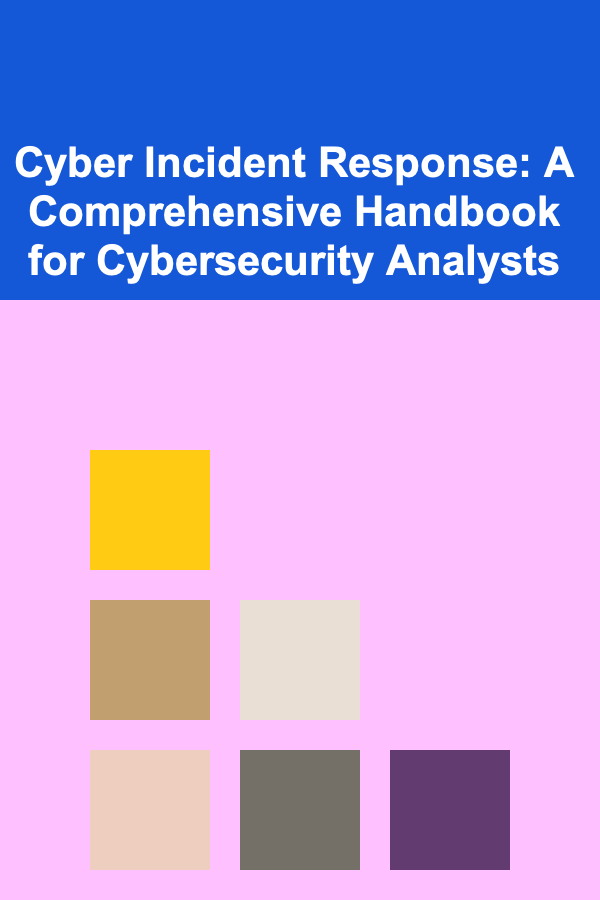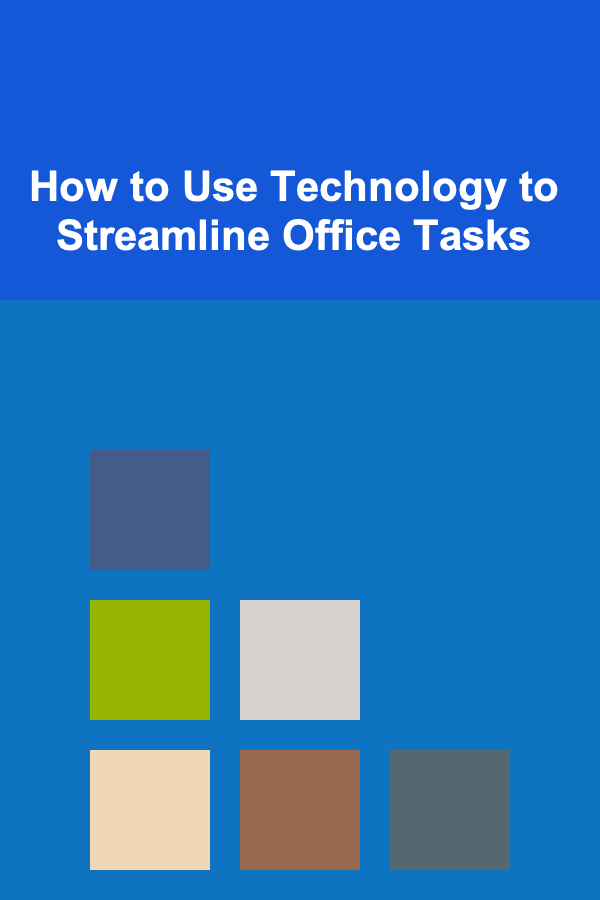
How to Avoid Scams and Protect Your Finances Online
ebook include PDF & Audio bundle (Micro Guide)
$12.99$9.99
Limited Time Offer! Order within the next:

In today's digital age, financial transactions and online banking have become integral parts of daily life. From shopping to paying bills, almost everything we do can be done from the comfort of our homes using the internet. However, along with the convenience of online financial services comes the risk of falling victim to scams. Whether it's phishing emails, fraudulent investment schemes, or fake online stores, the internet is teeming with opportunities for scammers to exploit unsuspecting individuals.
This article provides in-depth insights into how to protect your finances from online scams, the different types of scams you may encounter, and the best strategies to avoid them. By understanding the risks and implementing effective security measures, you can safeguard your financial well-being and navigate the online world with confidence.
Understanding Online Scams
Online scams are fraudulent schemes that are carried out over the internet, often targeting individuals or organizations in an attempt to steal personal information, money, or both. These scams can take various forms, and scammers continuously evolve their tactics to exploit new technologies and online trends. The goal of these scams is to deceive people into providing sensitive information such as passwords, credit card numbers, or social security details.
The most common types of online scams include:
- Phishing: A scam where fraudsters impersonate legitimate organizations (e.g., banks or tech companies) in order to trick you into giving up personal information.
- Investment Scams: Fraudulent schemes that promise high returns with little to no risk, often in the form of fake cryptocurrency investments or "too good to be true" stock tips.
- Online Shopping Scams: Fake e-commerce websites or listings on auction platforms where scammers sell non-existent products or services.
- Identity Theft: When fraudsters obtain personal information such as your social security number, banking details, or credit card numbers to commit fraud.
- Ransomware: A type of malware that locks you out of your device or files and demands payment in exchange for restoring access.
- Lottery or Prize Scams: Scammers claim you've won a large sum of money or a prize but ask you to pay upfront fees before receiving the winnings.
By recognizing these scams and understanding their methods, you can take steps to avoid falling victim.
Red Flags of Online Scams
Scammers use a variety of techniques to make their attacks seem legitimate, but there are often warning signs that can help you identify fraudulent activity. Here are some red flags to watch out for:
1. Unsolicited Requests for Personal Information
If you receive an email, message, or phone call from an organization or individual asking for your personal information, be skeptical. Legitimate companies will never ask you for sensitive data like passwords, Social Security numbers, or bank account details via unsecured channels such as email.
2. Too Good to Be True Offers
Scammers often promise deals that seem too good to be true, such as an incredible discount or a high-paying investment opportunity. If the offer sounds too good to be true, it probably is. Always research and verify offers before acting on them.
3. Urgent or Threatening Language
Scammers often use urgency to pressure you into making hasty decisions. They may tell you that your account has been compromised, or that your payment is overdue and immediate action is required. These threats are designed to make you panic and act impulsively.
4. Suspicious or Generic Email Addresses
Look out for email addresses that seem off. Scammers may use email addresses that appear similar to legitimate ones but with small changes, such as an extra letter or a different domain. Always check the sender's email address carefully.
5. Unusual Payment Methods
If you are asked to pay using unconventional methods such as gift cards, wire transfers, or cryptocurrency, it is a major red flag. Scammers often prefer these payment methods because they are hard to trace.
Best Practices for Protecting Your Finances Online
While scams are widespread, there are several practical measures you can take to safeguard your finances and personal information online. Here are the best practices for protecting yourself from online fraud.
1. Use Strong and Unique Passwords
One of the most important ways to protect your online accounts is by using strong, unique passwords for each one. Avoid using common passwords like "123456" or "password." Instead, create passwords that are difficult to guess and contain a combination of letters, numbers, and special characters.
- Use a password manager to store and manage your passwords securely.
- Enable two-factor authentication (2FA) for an added layer of protection. 2FA requires you to provide an additional piece of information (such as a code sent to your phone) to log in to an account.
2. Monitor Your Financial Accounts Regularly
Constant vigilance is essential for catching fraudulent transactions early. Regularly monitor your bank accounts, credit card statements, and any other financial accounts you may have.
- Set up alerts with your bank or financial institution so you are notified of any unusual activity, such as large withdrawals or transactions.
- Consider subscribing to identity theft protection services that offer real-time monitoring of your financial accounts and credit report.
3. Be Cautious with Emails and Links
Phishing attacks are one of the most common ways that scammers try to steal your personal information. If you receive an unsolicited email or text message, avoid clicking on any links or downloading attachments unless you are certain that the message is legitimate.
- Check for signs of phishing, such as misspellings, suspicious links, or an email address that looks unfamiliar.
- When in doubt, visit the official website of the company or organization directly (without clicking on any links in the email) and contact their customer service team to verify the legitimacy of the message.
4. Avoid Public Wi-Fi for Financial Transactions
Public Wi-Fi networks, such as those in coffee shops, airports, or hotels, are often unsecured and can expose your sensitive information to hackers. Avoid accessing your bank accounts, making online payments, or conducting any financial transactions when connected to public Wi-Fi.
- If you must use public Wi-Fi, consider using a virtual private network (VPN) to encrypt your internet connection and protect your data from prying eyes.
5. Verify the Legitimacy of Websites
Before making any online purchases or entering sensitive information, always verify that the website is legitimate and secure.
- Look for "https" in the website's URL, which indicates that the site uses encryption to protect your data.
- Verify that the website is authentic by checking reviews, looking for contact information, and confirming that the domain name matches the company's official name.
- Be cautious when dealing with unfamiliar websites or deals that seem too good to be true.
6. Use Secure Payment Methods
When making online purchases, always use secure payment methods that offer buyer protection. Credit cards are generally safer than debit cards because they offer better fraud protection. Additionally, many credit card companies offer zero-liability policies for unauthorized transactions.
- Consider using payment services such as PayPal, Apple Pay, or Google Pay, which add an extra layer of security by acting as intermediaries between your bank account and the seller.
7. Update Your Software Regularly
Hackers can exploit security vulnerabilities in outdated software to gain access to your personal information. Keep your operating system, web browsers, antivirus software, and other programs up to date with the latest security patches and updates.
- Set your software to update automatically, so you don't have to worry about manually checking for updates.
- Regularly update your antivirus software to protect against malware, ransomware, and other types of cyberattacks.
8. Educate Yourself About New Scams
Scammers constantly adapt their tactics to exploit emerging technologies, so it's important to stay informed about the latest scams. Follow reputable sources of information, such as government agencies or financial institutions, to learn about common scams and how to protect yourself.
- Government websites like the Federal Trade Commission (FTC) in the U.S. or Action Fraud in the UK provide updates on prevalent scams and tips on how to avoid them.
- Subscribe to newsletters or blogs from trusted cybersecurity experts who can alert you to new scams and provide advice on how to stay safe online.
9. Report Scams Immediately
If you encounter a scam or suspect that you've been targeted by a fraudulent scheme, report it immediately to the relevant authorities. Early reporting can help prevent further damage and help authorities track down scammers.
- In the U.S., report scams to the FTC via their website or to your state's consumer protection agency.
- You can also report phishing emails to your email provider and alert your bank or financial institution if you believe your account has been compromised.
Conclusion
Online scams are a significant threat to your financial security, but by being vigilant and implementing the right protective measures, you can reduce the risk of falling victim to fraud. Start by understanding the types of scams that exist, recognizing warning signs, and using secure online practices to protect your personal and financial information.
Regular monitoring of your accounts, using strong passwords, and being cautious with emails and links are just a few steps you can take to safeguard your finances. As technology evolves, it's important to stay informed about new scams and adapt your security practices accordingly.
By taking proactive steps to protect yourself and your finances, you can navigate the digital world with confidence, knowing that you are equipped to avoid scams and protect your hard-earned money.
Reading More From Our Other Websites
- [Survival Kit 101] Survival Kit vs Bug Out Bag: What Every Prepper Needs to Know
- [Personal Financial Planning 101] How to Save for a Down Payment on a House in a High-Cost Area
- [Metal Stamping Tip 101] The Top 5 Factors That Influence Metal Stamping Costs (And How a Calculator Helps)
- [Personal Care Tips 101] How to Incorporate Body Spray into Your Nighttime Routine
- [Home Lighting 101] How to Use String Lights to Create a Magical Ambiance
- [Organization Tip 101] Professional vs. DIY Quartz Countertop Repair: What You Should Consider
- [Home Lighting 101] How to Use Lighting to Create a Relaxing Outdoor Space
- [Home Budget 101] How to Create a Budget Spreadsheet: A DIY Guide to Tracking Your Finances
- [Organization Tip 101] How to Plan Seasonal Outfits Ahead of Time
- [Home Holiday Decoration 101] How to Celebrate Your First Christmas in a New Home

Cyber Incident Response: A Comprehensive Handbook for Cybersecurity Analysts
Read More
How to Maximize Rental Income from Your Property
Read More
How to Maximize Your Retirement Contributions for Early Retirement
Read More
How to Optimize Your Cooking Time During Meal Prep
Read More
How to Organize Your Recipe Files for Maximum Efficiency
Read More
How to Use Technology to Streamline Office Tasks
Read MoreOther Products

Cyber Incident Response: A Comprehensive Handbook for Cybersecurity Analysts
Read More
How to Maximize Rental Income from Your Property
Read More
How to Maximize Your Retirement Contributions for Early Retirement
Read More
How to Optimize Your Cooking Time During Meal Prep
Read More
How to Organize Your Recipe Files for Maximum Efficiency
Read More